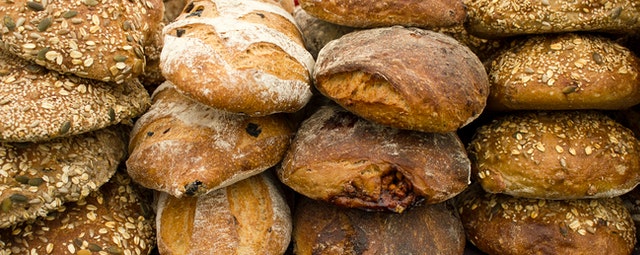Page Contents
Why should I use the carbohydrate calculator?
The carbohydrate calculator will give you a figure for how much carbohydrate you should be consuming on a daily basis. Carbohydrates are a staple of any healthy balanced diet, and should never be labelled as the bad guy when it comes to weight loss. Combining this calculator with the protein calculator will give you 2/3rd’s of your macronutrients. The number of calories you have left over will then be made up by your fats. We talk about this more in our weight loss e-book. Check that out here.
What is a carbohydrate?
Simply put, a carbohydrate is a combination of starch, sugars and fibres. These are then broken down to provide energy. From there you either have simple or complex carbohydrates. Simple carbohydrates cause a spike in blood sugar levels; this can lead to an increased store of fat. Examples of simple carbohydrates are; biscuits, sweets and chocolate. Complex carbohydrates will provide a more sustained energy release; examples of this are, pasta and bread. The type of carbohydrate depends on the number of units of sugar units in the molecule. Many foods will contain both of these so it is hard to split foods into separate categories.

How many calories are in carbohydrates?
Per gram carbohydrates provide the same number of calories as protein, 4kcal per gram. Therefore to determine how many calories in your diet are from carbohydrates, take the carbohydrate calculator score and multiply this figure by 4. Your balanced diet will consist of between 40-60% carbohydrates. This does all depend on your level of physical activity, carbohydrates are used for the fuelling of the body and recovery. This is all covered in the aforementioned e-book.

What are good sources of carbohydrates?
When looking at your choice of carbohydrates you want to think of the glycaemic index (GI) of the carbohydrate. The higher the GI the greater the spike of glucose in the blood, which can lead to more carbohydrates being stored as fat. However, glycaemic load (GL) can give you a better idea of the effect of this. If the GL is low then you shouldn’t worry, instead this is a good carbohydrate source. If the GL is high then this is a more accurate representation of a surge in blood glucose. The below table will show you a few different examples of carbohydrates.
| Food | Portion | GI | Carbohydrates per portion (g) | GL |
| Baked Potato | 150g | 85 | 30 | 26 |
| Wholemeal Bread | 30g | 71 | 13 | 9 |
| White Rice | 150g | 64 | 36 | 23 |
| Rich Tea Biscuit | 25g | 55 | 19 | 10 |
| Brown Rice | 150g | 55 | 33 | 18 |
| Spaghetti | 180g | 38 | 48 | 18 |
Should I avoid carbohydrates when I want to lose weight?
Not at all! Carbohydrates are your friend. Studies have shown that eating carbohydrates can increase your metabolic rate; this is due to the burning of around 10-15% of the calories being burnt through heat. When you eat carbohydrates you will store it as glycogen. One thing that you should do is to take a look at the GI and GL of the carbohydrate source. If these are both high you are more likely to store the carbohydrates as fat. This is due to a rapid release of insulin into the blood to combat the increased amount of blood glucose. Control this and carbohydrates will play no issue on your fat deposits.

Why does my carbohydrate intake increase when I exercise more?
Carbohydrates are stored as glycogen. This glycogen is used as fuel in your muscles in almost every type of activity you will do. The more you train the more you will want to consume. Increasing your carbohydrate intake, especially after exercise, will help to replace any loss to the glycogen stores. If you really want to optimise your recovery post-exercise, combining your carbohydrates with protein can speed up the replenishing of your glycogen stores. One factor that slows down this is the extent of muscle damage. Combining the two will help with muscle synthesis and replenish glycogen stores.
So use the carbohydrate calculator to get a better understanding on what your carbohydrate intake should be.
